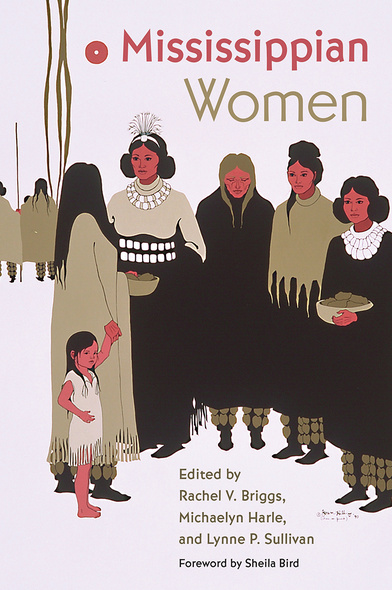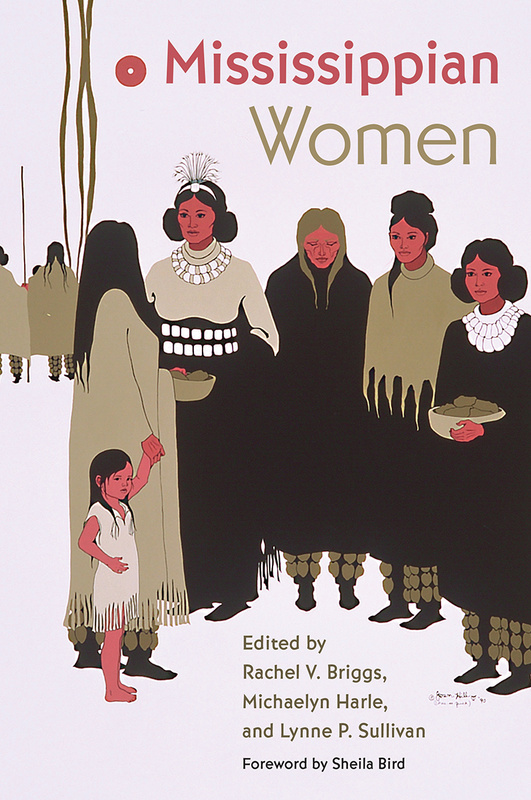Our shopping cart is currently down. To place an order, please contact our distributor, UTP Distribution, directly at utpbooks@utpress.utoronto.ca.

Mississippian Women
Highlighting the role of precontact Indigenous women in building and transforming Mississippian culture
This volume highlights how women were powerful farmers, economic decision-makers, spiritual leaders, and agents of social integration in the diverse societies of the Mississippian world, which spanned the present-day United States South to the Midwest before the seventeenth century. While Mississippian societies are some of the most well-researched pre-European contact societies on the continent, little attention has been dedicated specifically to Mississippian women. These chapters offer new insights into the vital role women played within their communities, an approach directly informed by the powerful position of American Indian women within contemporary American Indian communities.
Contributors examine themes such as identity, labor, grieving, cooking, craft production, spatial organization, prestige, morbidity, kinship, and fertility. Case studies include sites throughout the Mississippian world, ranging from Illinois to Florida, including Cahokia and Moundville. Mississippian Women is the first volume to focus solely on the political, social, and economic power of women during this period, linking their actions in building their culture before European colonialism with the work of Indigenous women in the region today.
A volume in the Florida Museum of Natural History: Ripley P. Bullen Series
“An eye-opening dive into the lives, contributions, and power of Indigenous women through a myriad of archaeological methods.”—Christina Friberg, author of The Making of Mississippian Tradition
“A welcome and overdue volume for Mississippian archaeology. It will no doubt be useful for Mississippian archaeologists as well as for those interested in gender in past contexts.”—B. Jacob Skousen, coeditor of Tracing the Relational: The Archaeology of Worlds, Spirits, and Temporalities
Rachel V. Briggs is teaching assistant professor of anthropology at the University of North Carolina at Chapel Hill.
Michaelyn S. Harle is an archaeologist at the Tennessee Valley Authority. Lynne P. Sullivan, curator emerita of archaeology at the McClung Museum of Natural History and Culture at the University of Tennessee, is coeditor of Grit-Tempered: Early Women Archaeologists in the Southeastern United States.
Contents
List of Figures ix List of Tables xiii Foreword xv
1. The Current State of (Mississippian) Women: Archaeology, Gender, and Indigenous Feminism 1
Rachel V. Briggs and Michaelyn S. Harle
2. Recognizing Women at Cahokia: Farmers; Weavers; Agents of Polity Integration 37
Gayle J. Fritz
3. Cooks, Cooking, and Cooking Pots: A Landscape of Culinary Practice and the Origins of Moundville, AD 1070–1200 62
Rachel V. Briggs
4. The Life Course of Women in Upper Tennessee Valley, Dallas Phase Communities 90
Michaelyn S. Harle, Tracy K. Betsinger, and Lynne P. Sullivan
5. Mississippian Geographies of Fertility: A Multiscalar View from Southeast Missouri 116
Jennifer Bengtson and Toni Alexander
6. Matrilineal Kinship Networks and Late Mississippian Politics in the Upper Tennessee Valley 146
Lynne P. Sullivan
7. Where Women Work: Taskscapes and Activity Area Analysis 171
Ramie A. Gougeon
8. Earth Mother and Her Children: The Role of Mississippian Women in Shaping Beliefs and Material Culture in the Middle Cumberland Region 194
Robert V. Sharp
9. Gender, Craft Production, and Emerging Power in Mississippian Hierarchical Societies 229
Maureen S. Meyers
10. Women and Power at Joara, Cuenca, and Fort San Juan 247
Christopher B. Rodning, Rachel V. Briggs, Robin A. Beck, Gayle J. Fritz, Heather A. Lapham, and David G. Moore
11. Fort Walton Women 272
Nancy Marie White
12. Learning About and From Mississippian Women 290
Lynne P. Sullivan
List of Contributors 305 Index 309




